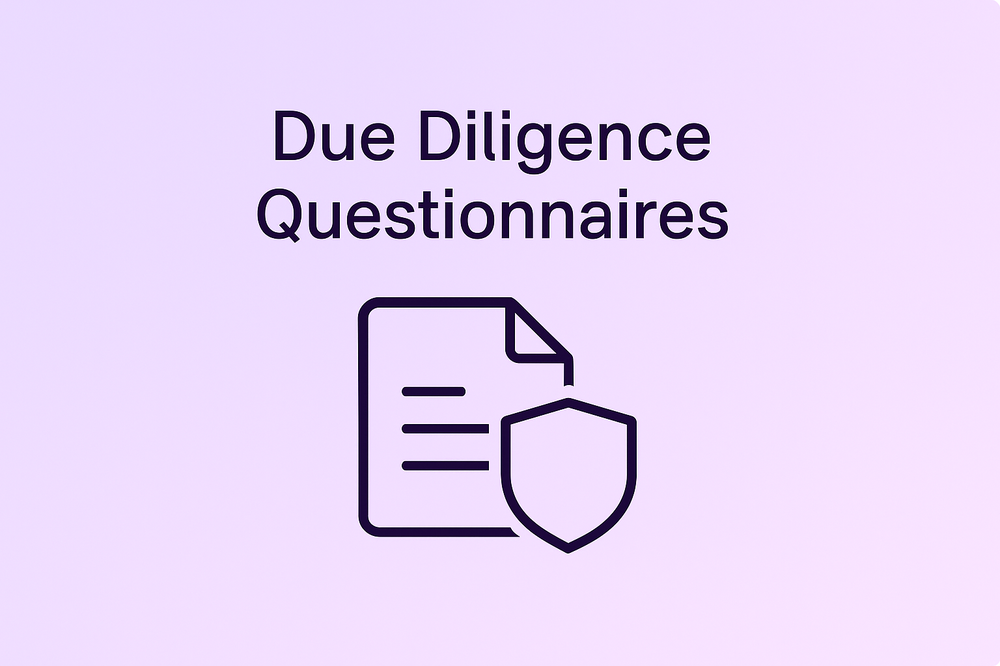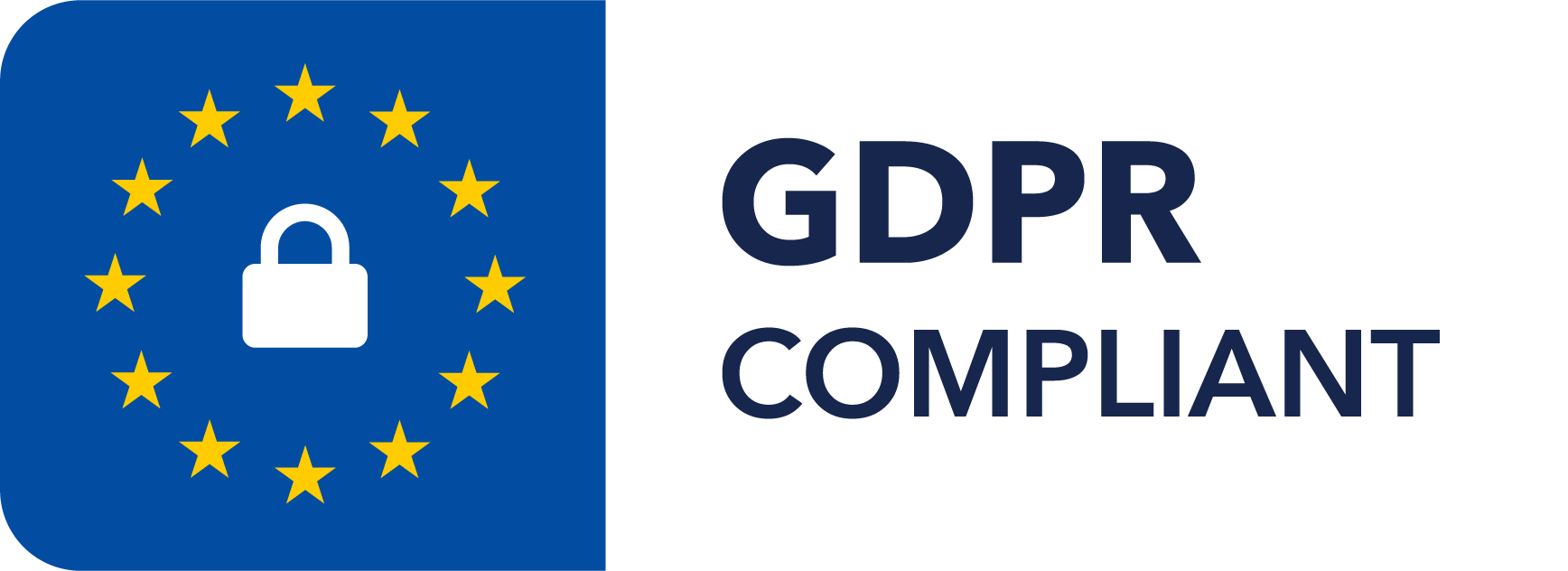What Is a Due Diligence Questionnaire (DDQ)?

What Is a Due Diligence Questionnaire (DDQ)?
A Due Diligence Questionnaire (DDQ) is a structured document organizations use to assess a vendor’s business practices, financial stability, compliance posture, and operational maturity before entering a commercial relationship.
DDQs validate that a vendor is reliable, secure, compliant, and capable of delivering on its commitments — making them a core part of vendor onboarding and procurement.
Unlike a security questionnaire, which focuses primarily on cybersecurity controls, DDQs offer a holistic assessment across legal, financial, operational, and governance areas.
DDQs are commonly required during procurement, enterprise onboarding, or partnership evaluations, and may include hundreds of questions across risk domains such as data protection, business continuity, regulatory compliance, and insurance coverage.
Learn how automation streamlines DDQs in our blog:
What Is Proposal Automation?
Purpose of a Due Diligence Questionnaire
The goal of a DDQ is to confirm that a vendor operates responsibly and meets business, regulatory, and risk standards before signing a contract.
DDQs help organizations:
- Verify security and compliance posture
- Assess operational processes and internal controls
- Evaluate financial health and business continuity
- Understand vendor risk and regulatory exposure
- Build confidence before onboarding a business-critical supplier
Many companies also conduct annual vendor reviews to confirm ongoing compliance and track risk over time.
Learn how Iris Pro accelerates this in our article:
RFP Automation for SaaS Companies
Common DDQ Frameworks & Standards
DDQs often leverage industry-recognized guidelines that promote consistency and reduce friction between buyers and vendors.
Common frameworks and sources include:
- AICPA Trust Services Criteria
- ISO 27001 governance and risk controls
- NIST Cybersecurity Framework
- Financial and compliance reporting standards (e.g., SOX)
- Industry-specific requirements for healthcare, government, and finance
Standardization helps ensure vendors meet consistent criteria across industries and risk profiles.
Why DDQs Matter
Effective DDQ processes help organizations:
- Reduce third-party risk exposure
- Meet compliance and regulatory requirements
- Build trust in vendor relationships
- Avoid costly business interruptions or data exposure
- Shorten procurement cycles through repeatable review processes
For vendors, strong DDQ responses — supported by policies, evidence, and automation — help accelerate deal cycles and improve buyer confidence.
Explore how AI supports this in our post:
Proposal Automation and Why the Human Element Still Matters
How Iris Pro Helps
Iris Pro automates and accelerates DDQ completion by:
- Parsing DDQs from spreadsheets, PDFs, portals, and documents
- Auto-suggesting answers using approved compliance data
- Maintaining a living knowledge base of verified responses
- Mapping language to frameworks like SOC 2, ISO, and NIST
- Streamlining internal review and legal/compliance approvals
- Ensuring accuracy and language consistency across teams
With Iris, revenue and security teams respond to DDQs faster and with higher confidence — eliminating manual copy-paste cycles and reducing turnaround time.
Learn more in our related article:
SOC 2 Explained: What It Is and Why It Matters (once published)
Best Practices for Managing DDQs
To streamline DDQ management, teams should:
- Maintain a centralized, version-controlled knowledge base
- Update answers regularly to reflect evolving controls
- Standardize language and link to verified evidence
- Create internal ownership workflows for each question category
- Integrate automation tools like Iris Pro to scale across questionnaires
Related Glossary Terms
- Security Questionnaire (when live)
- RFP (Request for Proposal)
- RFI (Request for Information)
- Proposal Automation
FAQs:
- Q: Why do buyers use a Due Diligence Questionnaire?
A: A DDQ helps an organization thoroughly vet a prospective vendor before signing a dealheyiris.ai. It confirms the vendor’s business practices, financial stability, security controls, and compliance measures – basically ensuring the vendor is responsible and low-risk on all fronts before entering a partnershipheyiris.ai. - Q: How is a DDQ different from a security questionnaire?
A: A security questionnaire focuses just on cybersecurity and data protection, whereas a DDQ is broaderheyiris.ai. The DDQ covers not only security, but also legal, financial, operational, and governance aspects of a vendor’s business to paint a full risk profileheyiris.ai. In short, a DDQ is a holistic vendor check, beyond IT security alone. - Q: When in the process is a DDQ typically required?
A: DDQs usually come into play during the vendor selection or onboarding stage for enterprise dealsheyiris.ai. For example, after a vendor is shortlisted (perhaps after an RFP win), the customer’s procurement or risk team issues a DDQ before finalizing the contract – and some companies even require vendors to complete a DDQ annually thereafter. - Q: What topics does a standard DDQ cover?
A: DDQs are lengthy – they often include sections on security and privacy controls, regulatory compliance (e.g. GDPR, industry-specific laws), financial health and insurance, business continuity and disaster recovery plans, and operational processes/policiesheyiris.ai. This wide scope ensures the vendor checks all the boxes for risk and compliance standards.















